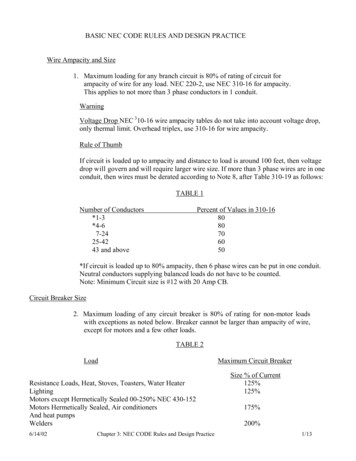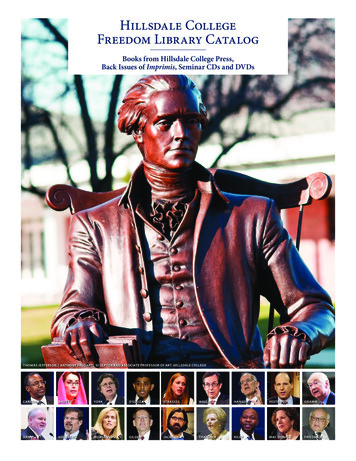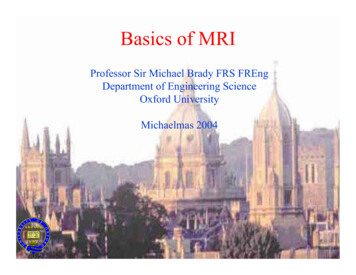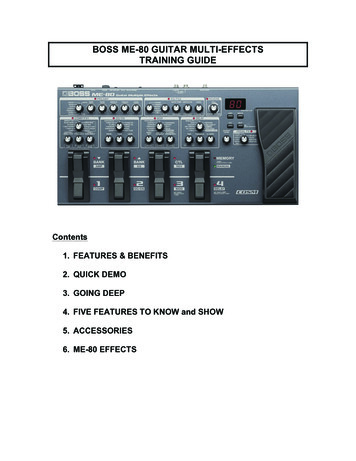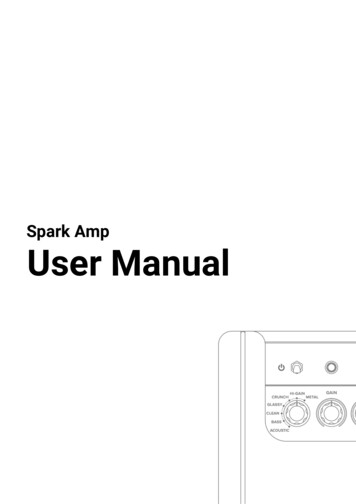
Transcription
2/27/21M & M’S FOR THE SOULMINDFULNESS & MEDITATIONSpoonful of science to satisfy the heart1WILLIAM JAMES“The education ofattention would bethe education parexcellence.”21
2/27/213CORE ATTITUDES OF MINDFULNESS Non-judgingAcceptancePatienceBeginner’s mindTrustNon StrivingLetting GoGratitudeGenerosityJon Kabat-Zinn42
2/27/21SHAUNA SHAPIROMODEL OF MINDFULNESS Intention Attention AttitudeEffects of meditation on brainWhat we practice grows stronger!5MAGIC MOMENT OF MEDITATION Recognize distraction Compassion for self Gently let go Begin again63
2/27/21CHALLENGES TOREGULATING ATTENTION Innate tendency to haveskittery attention Natural variation temperament Distracting, demanding, overstimulating culture Personal history Illness7TIPS TO OVERCOME BARRIERS &BEGIN PRACTICE OF MEDITATION1. Find a regular time.2. Keep it brief- one conscious breath is okay to begin.3. Find comfortable posture.4. Choose a form you enjoy.5. Release expectations- practice beginner’s mind.84
2/27/21MICRO-PRACTICES AID WELL-BEING9WHAT AM I? Most complex physical objectin universe 3# tofu like structure 2-3% body weight Uses 25% of oxygen & glucosein blood 1.1 trillion cells; 10 % areneurons105
2/27/21WHERE’S YOUR BRAIN RIGHT“NOW”?Prefrontal cortex:F flexibleA adaptableC coherentE energizedS stable11NEUROPLASTICITY“Neurons that fire together,wire together.”-Donald Hebb,Canadian Psychologist126
2/27/21DANIEL GOLEMAN“When you look at the brains of meditators, the areasrelated to attention, learning, and compassion growbigger and stronger.It’s called cortical thickening the growth of new neurons in response to repeatedpractice.”What we practice grows stronger!!13In the GOODNESSof your PRACTICE147
2/27/21APPRECIATING LIFE IS FRAGILEMeditation changes hearts capacity to accept life as it is.15ACCEPTANCE & LOVEKnow thyself and be thyselfAbide in deeper place within selfMindset of enough-ness vs. deficiencyGoal is not to “fix” ourselves but rather to see ourselves as we are.168
2/27/21WHAT ABOUT nityChange from INSIDE OUT ispossible!Grow way into beingReduce cognitive declineIncrease positive emotionsReduce ctionsDecrease cellular agingHeart rate coherenceCortical thickeningImprove moodCompassion17BENEFITS TO MINDFUL PRACTICESLess RuminationMore Precision in thoughtLess AntagonismSharper IntuitionLess ResentmentBetter ConcentrationLess TensionBetter ConnectionsLess FearMore KindnessLess AnxietyMore Compassion189
2/27/21TRAUMADEFINITIONAny event or series of eventsstressful enough to leave one: Overwhelmed Profoundly unsafe Dysregulated nervous system(hyper or hypo aroused)Pat Ogden, somatic psychologist192010
2/27/21TRAUMA SENSITIVE LENSGoal:Access choice in any situation(keeps stress from becoming trauma)Widen window of tolerance by recovering from prior stressorsTechniques:GroundingMove from dysregulation to self-regulation21WAYS TO SETTLE THE MIND Anchoring Resting Being2211
2/27/21MIND TRAINING Notice thoughts Offers choice whendysregulationpresents Coach survival brainto perceive safety(neurocept)23REST IS ESSENTIALR. Release (relax attention)E. Empty(exhale all striving)S. Surrender (sense the silence)T. Trust(tune in to awareness)mindful.org2412
2/27/21BOB SHARPLES‘MEDITATION: CALMING THE MIND’“Don’t meditate to fix yourself, to heal yourself, to improveyourself, to redeem yourself; rather, do it as an act of love, ofdeep warm friendship to yourself.In this way there is no longer any need for the subtle aggression ofself-improvement, for the endless guilt of not doing enough.It offers the possibility of an end to the ceaseless rounds of tryingso hard that wraps so many people’s lives in a knot. Instead thereis now meditation as an act of love. How endlessly delightful andencouraging.”25HEART COMPASS2613
'MEDITATION: CALMING THE MIND' "Don't meditate to fix yourself, to heal yourself, to improve yourself, to redeem yourself; rather, do it as an act of love, of deep warm friendship to yourself. In this way there is no longer any need for the subtle aggression of self-improvement, for the endless guilt of not doing enough.






